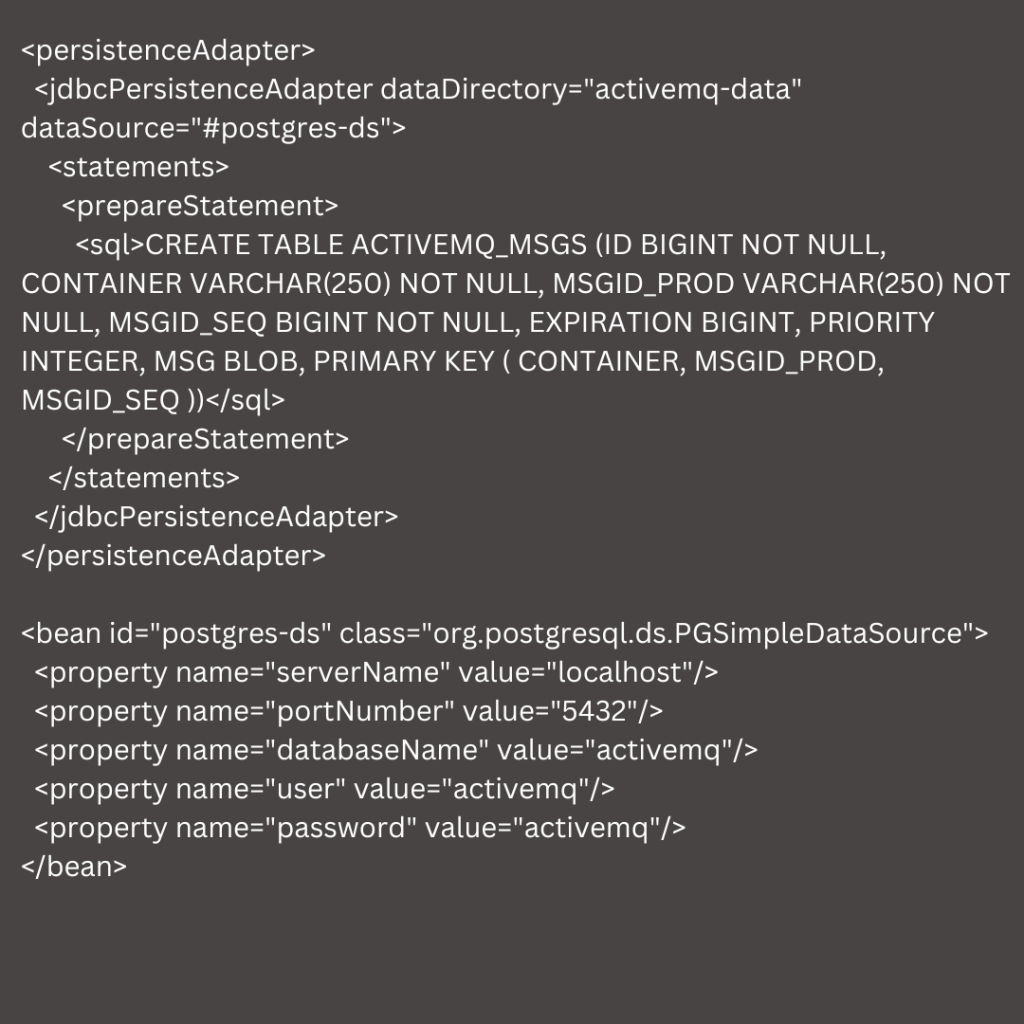Here is a quick introduction to ActiveMQ Persistence PostgreSQL. Our PostgreSQL Management Support team is here to lend a hand with your queries and issues.
How to use ActiveMQ Persistence with PostgreSQL
ActiveMQ persistence with PostgreSQL involves using PostgreSQL as a durable storage solution for Apache ActiveMQ messaging broker.
In fact, ActiveMQ is a well-known open-source message broker that enables applications to send as well as receive messages.
Did you know that persistence in a message system refers to storing messages in such a way that they do not get lost in case the broker goes down?
With PostgreSQL acting as the persistent store, we can ensure that any messages sent to the broker are still accessible in case of any trouble with the broker. In fact, this increases the reliability of messaging applications.
In order to use ActiveMQ persistence with PostgreSQL, we have to configure the broker to use the persistence adapter and then connect to a PostgreSQL database. This process includes setting up a database, creating tables, as well as configuring the ActiveMQ broker so that it uses the JDBC persistence adapter.
For instance, here is an example:

In the above example, the JDBC persistence adapter uses a PostgreSQL database running on localhost at port 5432. Furthermore, the prepareStatement block creates the necessary tables in the database.
[Need assistance with a different issue? Our team is available 24/7.]
Conclusion
To conclude, our Support Techs introduced us to using ActiveMQ Persistence with PostgreSQL.
PREVENT YOUR SERVER FROM CRASHING!
Never again lose customers to poor server speed! Let us help you.
Our server experts will monitor & maintain your server 24/7 so that it remains lightning fast and secure.







0 Comments